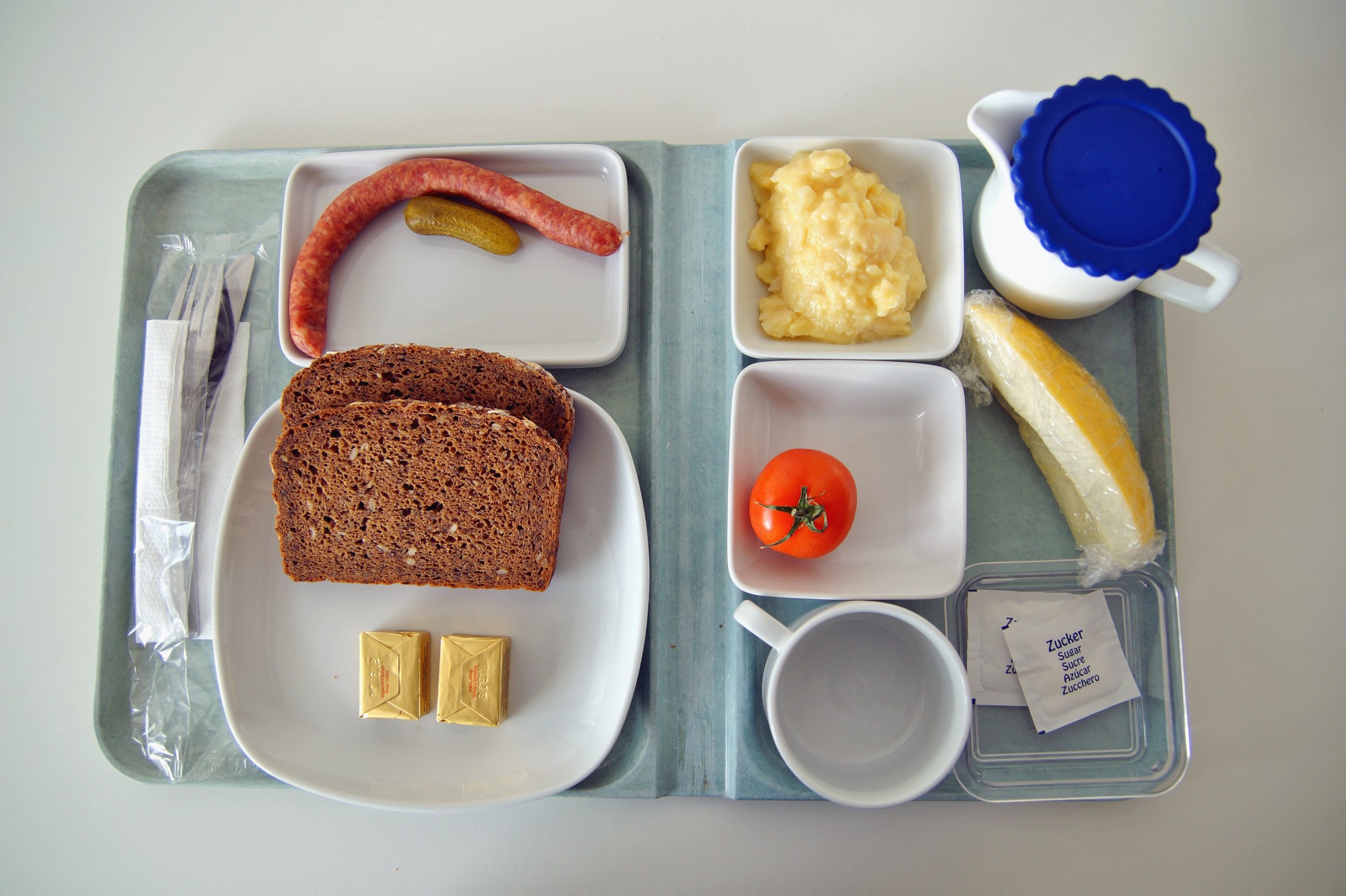How to talk to strangers
I’d had two coffees by the time we boarded at seven in the morning, so I was ready for a conversation. Talkative, I am, but not too fond of the sound of my own voice, mind. People are interesting, and I like to lend an ear. Just that. I adjusted the heavy backpack on my shoulder, handed my ticket to the attendant at the door and stepped aboard.
Picture by ImageSine
The plane was packed with travellers hobbling through the fuselage, jostling each other around to stow luggage in the off-white hatches above. The whir of muffled jet engines cut through the aisle. A woman was sat in the middle seat on the left above the wing, 19B – I’d memorised my own, 19A. I shrugged off the backpack and pointed at the window, grimacing apologetically. She smiled and slid out of the row to let me through, then sat back down in the middle. She adjusted her silver aviator glasses.
‘What’s taking you to Johannesburg?’ she asked.
I pulled a tin of gum out of the front pocket of the backpack.
‘Just family,’ I said. ‘My mum – she’s ninety-two – has been diagnosed with terminal cancer.’
‘I’m sorry to hear that. Ninety-two, that’s impressive.’
I clicked my tongue. ‘It sure is. How about you?’
‘Hospitality. You could say I’m a restaurateur. I’ll spare you the meat and bones of it. What’s your name?’
‘Janine.’
‘Alice.’
We shook hands and stopped talking for a time while the engine noise swelled louder, and the plane began to roll forward. I popped a piece of gum into my mouth.
‘Nervous flier?’ Alice asked.
‘Oh no, it’s just for my sinuses. Besides, we’re in the safe seat.’
‘The safe seat?’
‘Well, the second safest at least. The back of the plane is the most survivable in a crash. Then it’s the middle, then the front.’
I turned away to look out the window as we lifted off the tarmac. The sky was clear, and I could see straight up the coast, over the quilted farm plots and white beaches and little pockets of protected bushland.
‘Don’t believe everything you read on the internet,’ Alice said.
‘Hmm?’ I looked back at her. She was staring at me through those gleaming, wide glasses. It was unnerving, trying to piece together the manner behind her hidden eyes.
‘Well, anyway, tell you what,’ I said, nudging her and chuckling. ‘If the plane goes down, and I die first and you have to eat me, I won’t hold a grudge. I’m an organ donor, after all.’
I turned away to look out the window again and hoped that that would be that. Not all strangers are pleasant to talk to. An echoey beep rang out, and the fasten seatbelt sign went dark.
‘It’s not that easy,’ Alice said.
‘Hmm?’ I looked back.
‘It’s not that easy, eating a person.’
‘It’s not?’
‘No, there’s a recipe to it. The main ingredient is desperation. You won’t resort to it unless the alternative is death by starvation, since, obviously, most people find cannibalism distasteful.’
I frowned. ‘Can’t blame them.’ After a pause I added, ‘But I don’t think I could do it, even so.’
‘No, you could.’
‘Hmm?’
‘Most people with our comforts don’t realise how painful starvation actually is.’
‘That so?’
‘That so. Let’s call our unit of time “a while”, as data on this sort of thing is purely anecdotal, given how unethical any experimental science would be. After “a while” without nourishment, the human body turns on itself. You could say the body eats itself. First the fat, then eventually muscles and proteins. Mass, strength, energy, mental capacity – it’s all eaten up, slowly. In the end, you’re tortured into the act.’
I stopped chewing the gum and felt the pressure in my ears build. The cabin was mostly quiet, but no-one seemed to be paying attention to our conversation.
‘Since you seem to know so much about it,’ I lowered my voice, ‘What does human taste like?’
Alice shrugged. ‘It depends on who you ask, but you don’t want to know on your own.’
I thought back to the start of our conversation. Where was she going? Hospitality, restaurateur – Soylent green?
‘There are also logistical challenges. Let’s assume you’ve been starved into cannibalism. Once a human has been made into a carcass, bacteria will begin eating away at all those recently deceased cells. If we crashed someplace extremely cold, like Uruguayan Air Force Flight 571 did in the Andes, we wouldn’t have that problem, since your corpse would essentially be refrigerated. However, say we crash somewhere in the Indian Ocean, decomposition will begin immediately after death.’
I looked out the window. Far below, tankers crawled like ants across the ocean.
Alice continued. ‘Assuming my goal is to prolong my survival as long as possible, then what’s to say I shouldn’t keep you alive? I could sliver morsels from your thigh or belly. You’d probably die of infection after a while, and, eventually, starvation for sure, but it could increase my own longevity.’
I thought back to when I shook her hand – it was calloused and covered in nicks and dents.
‘How do you know all this?’ I leant back and pressed myself against the window.
Alice shrugged and adjusted her glasses. ‘Curiosity.’
I nodded very slowly. The plane shook.

